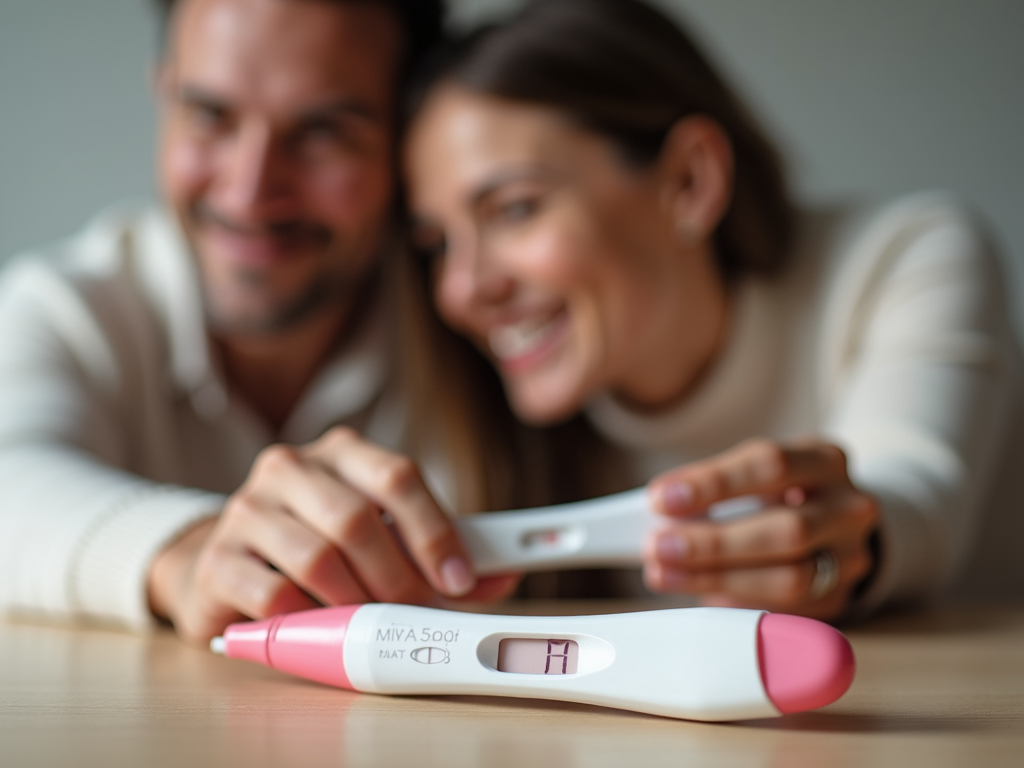Success Stories: Real Couples Share Their IVF Journeys
March 30, 2025, 1:25 p.m.
In vitro fertilization (IVF) has brought hope to millions of couples struggling with infertility. In this article, we share real-life success stories, explore IVF success rates, and provide insights on how to improve your chances of success.
For many couples, the journey to parenthood is not straightforward. Infertility affects approximately 1 in 8 couples, and for some, IVF becomes a beacon of hope. IVF, or in vitro fertilization, is a process where eggs are retrieved from a woman's ovaries and fertilized with sperm in a laboratory. The resulting embryos are then transferred to the woman's uterus, with the hope of achieving a successful pregnancy.

While the science behind IVF is fascinating, the emotional journey is equally compelling. Let's meet Sarah and John, a couple who faced years of infertility before turning to IVF.
Sarah and John had been trying to conceive for over three years. After numerous tests and consultations, they were diagnosed with unexplained infertility. "It was frustrating not knowing why we couldn't conceive," Sarah recalls. "But our doctor suggested IVF as a viable option, and we decided to give it a try."
The couple underwent their first IVF cycle with a mix of hope and anxiety. "The process was intense," John says. "From the daily injections to the constant monitoring, it was a rollercoaster of emotions." After the embryo transfer, they faced the agonizing two-week wait to find out if the treatment was successful.

To their immense joy, Sarah's pregnancy test came back positive. "It was the happiest day of our lives," Sarah says, tears welling up. "After so many disappointments, we finally had hope." Nine months later, they welcomed their baby girl, Emma, into the world.
Sarah and John's story is just one of many. IVF success rates vary, but according to the Society for Assisted Reproductive Technology (SART), the live birth rate for women under 35 is around 40% per cycle. However, success rates decline with age, dropping to about 20% for women aged 38-40 and 10% for those over 40.
Here's a table summarizing IVF success rates by age group:
| Age Group | Live Birth Rate per Cycle |
|---|---|
| Under 35 | 40% |
| 35-37 | 30% |
| 38-40 | 20% |
| Over 40 | 10% |
While these statistics provide a general overview, it's important to remember that every couple's journey is unique. Factors such as the cause of infertility, the quality of the embryos, and the clinic's expertise can all influence success rates.
So, how can couples improve their chances of success with IVF? Here are some tips based on expert advice and real-life experiences:
- Choose the right clinic: Research clinics thoroughly, looking at their success rates, patient reviews, and areas of specialization.
- Maintain a healthy lifestyle: Eat a balanced diet, exercise regularly, and avoid smoking and excessive alcohol consumption.
- Manage stress: IVF can be emotionally taxing. Consider counseling, support groups, or mindfulness practices to help cope.
- Follow medical advice: Adhere to your doctor's instructions regarding medications, appointments, and procedures.
- Consider genetic testing: Preimplantation genetic testing (PGT) can help identify healthy embryos, potentially increasing success rates.
Let's hear from another couple, Lisa and Mark, who faced multiple IVF cycles before achieving success.
Lisa and Mark's journey was marked by perseverance. After two failed IVF cycles, they were disheartened but not defeated. "We took a break to regroup and focus on our mental health," Lisa explains. "We also switched to a clinic that specialized in cases like ours."

On their third attempt, with a new clinic and a renewed sense of hope, Lisa became pregnant. "It was a long and difficult road, but holding our son in our arms made it all worth it," Mark says.
These stories highlight the importance of resilience and the willingness to adapt. IVF is not a one-size-fits-all solution, and what works for one couple may not work for another. It's crucial to stay informed, ask questions, and advocate for your own care.
In addition to personal stories, understanding the broader context of IVF can be helpful. Infertility is a complex issue, affecting both men and women. Causes can range from hormonal imbalances and genetic disorders to lifestyle factors and age.
IVF is just one of several assisted reproductive technologies (ART) available. Others include intrauterine insemination (IUI), intracytoplasmic sperm injection (ICSI), and egg or sperm donation. The choice of treatment depends on the specific circumstances of each couple.

Support systems play a vital role in the IVF journey. Many couples find solace in connecting with others who are going through similar experiences. Online forums, local support groups, and counseling services can provide emotional support and practical advice.
As we conclude, it's important to remember that while IVF can be a challenging process, it has also brought joy to countless families. The stories shared here are a testament to the strength and determination of couples who refuse to give up on their dream of parenthood.
IVF success stories inspire hope and provide valuable insights for those embarking on their own fertility journeys. By understanding success rates, learning from others' experiences, and taking proactive steps to improve their chances, couples can navigate the IVF process with greater confidence and resilience.